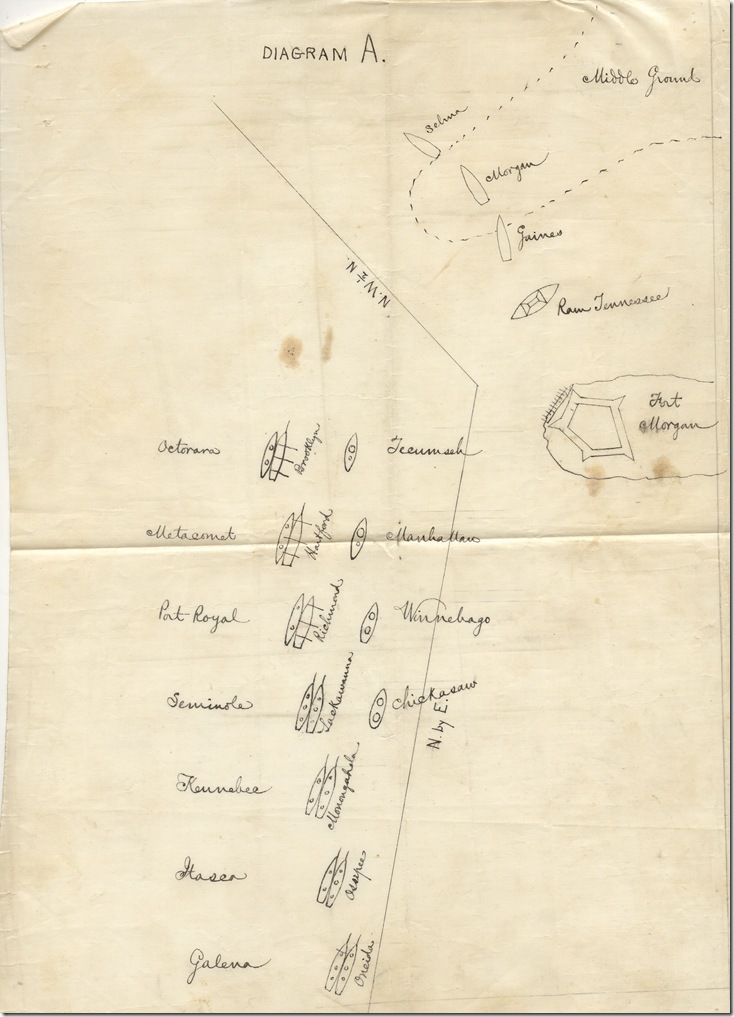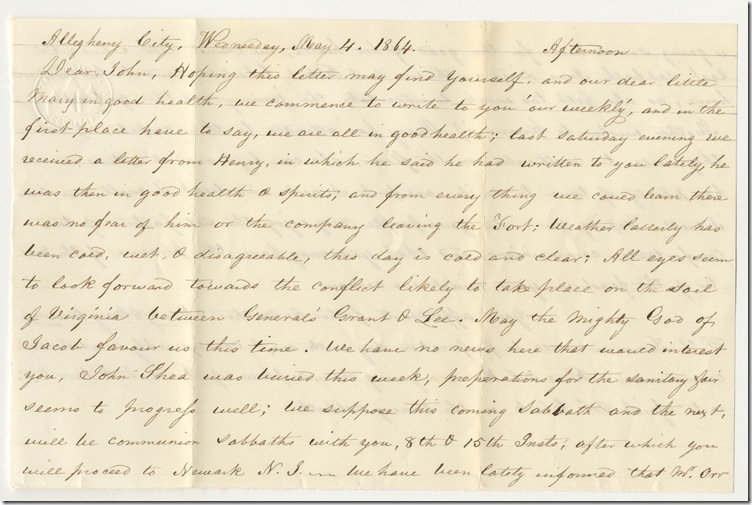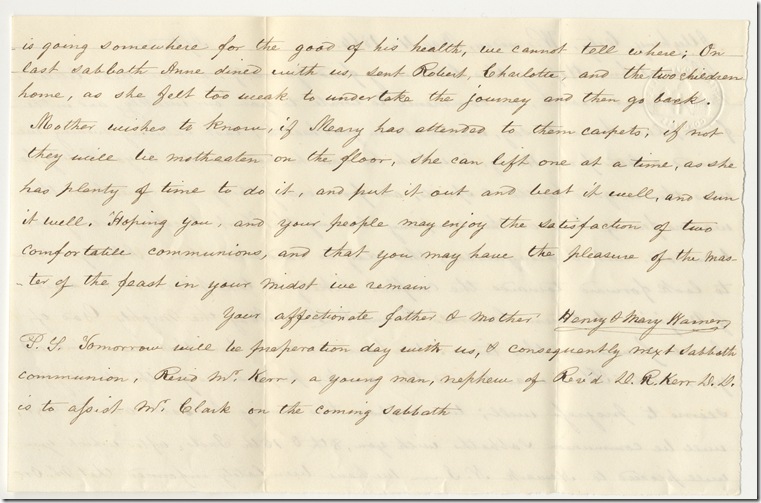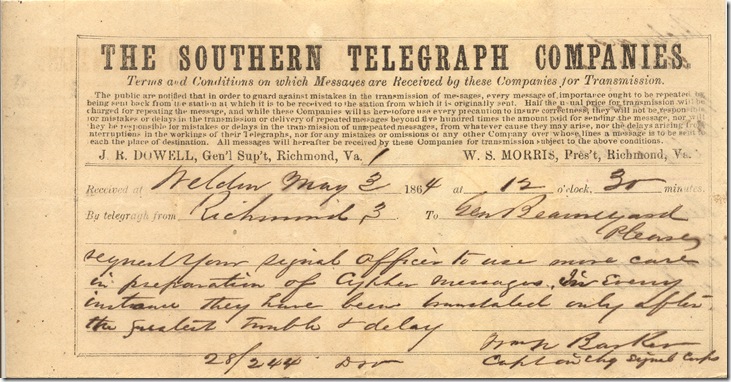Rev. John Riddle Warner was the grandfather of the poet Marianne Moore and during the Civil War, he lived in Gettysburg, Pennsylvania. These letters are preserved as part of Marianne Moore’s family papers.
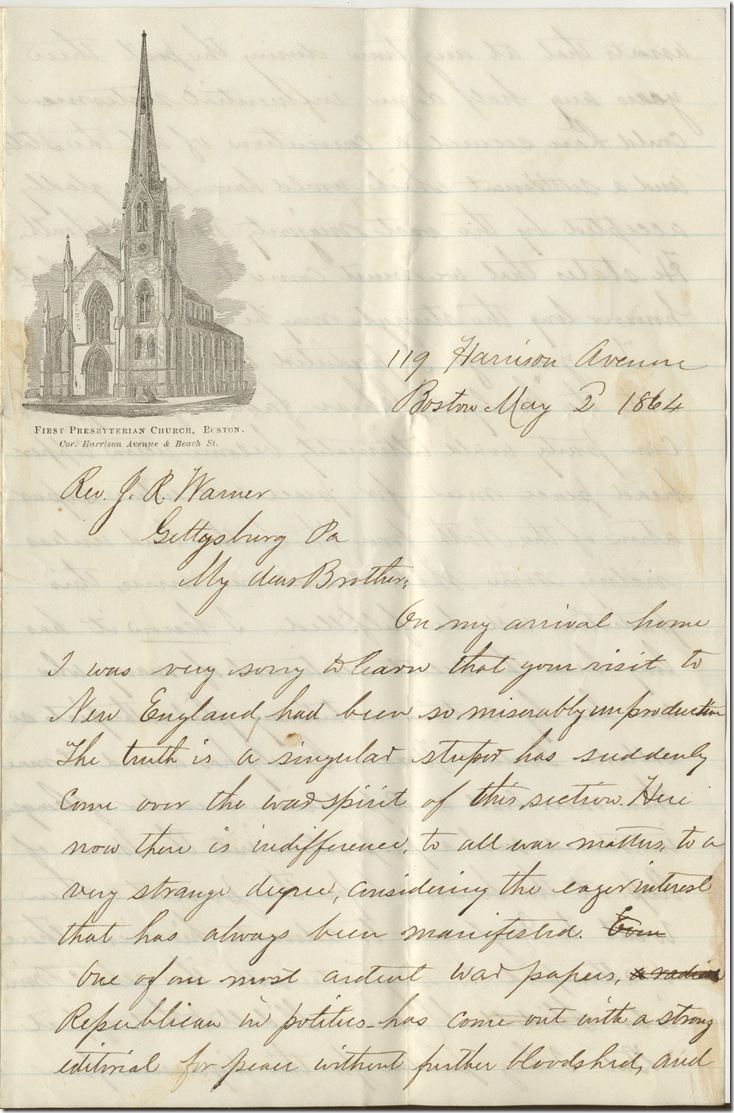
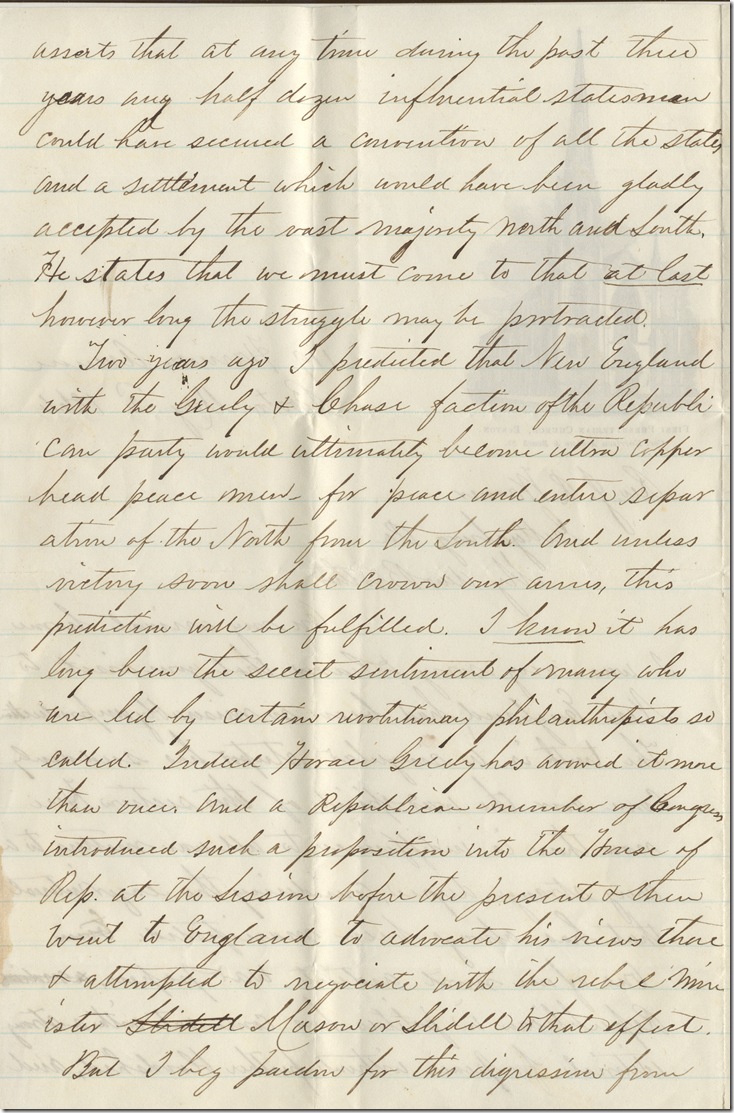
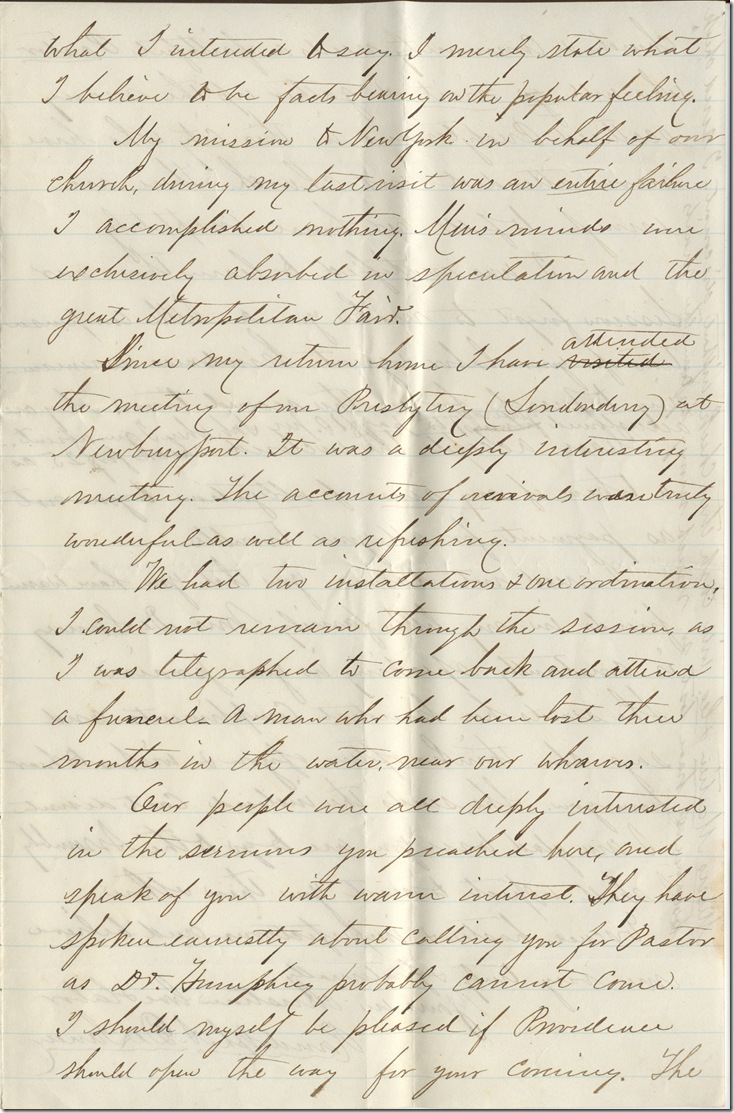
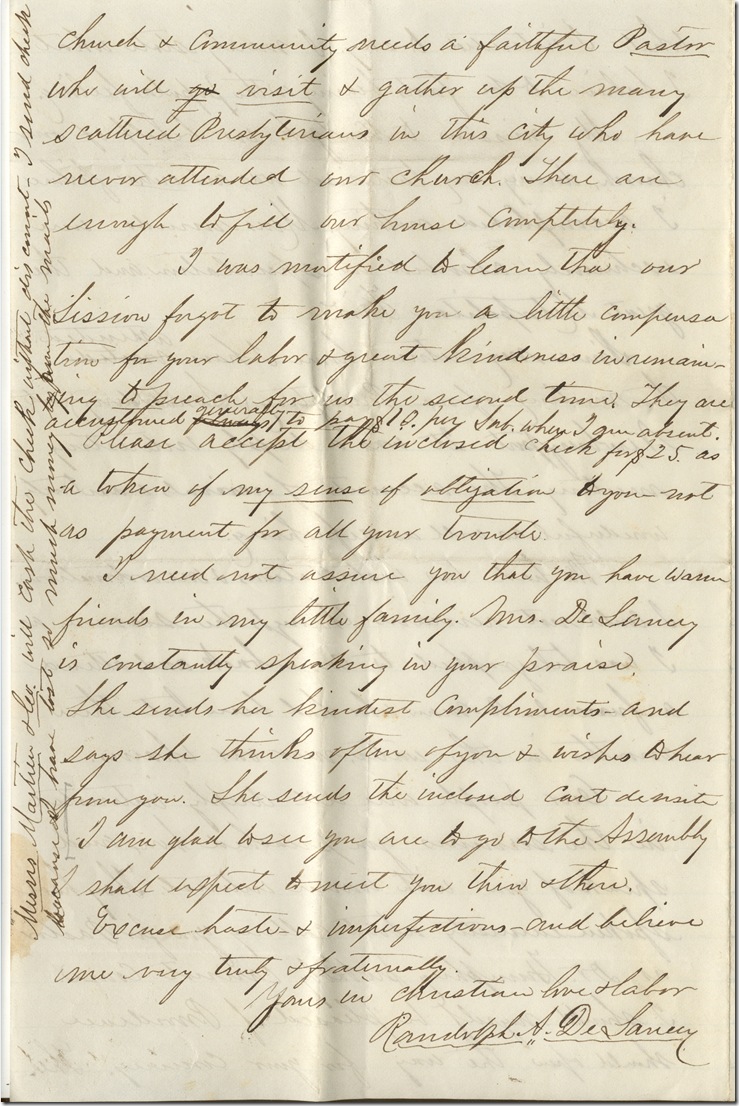
Transcript [excerpt]”:
119 Harrison Avenue
Boston May 2 1864
Rev. J.R. Warner
Gettysburg Pa
My dear Brother,
On my arrival home I was very sorry to learn that your visit to New England had been so miserably unproductive. The truth is a singular stupor has suddenly come over the war spirit of this section. Here now there is indifference to all war matters, to a very strange degree, considering the eager interest that has always been manifested.
One of our most ardent war papers, Republican in politics, has come out with a strong editorial for peace without further bloodshed, and asserts that at any time during the past three years any half dozen influential statesmen could have secured a convention of all the states, and a settlement which would have been gladly accepted by the vast majority North and South. He states that we must come to that at last however long the struggle may be protracted.
Two years ago I predicted that New England with the Greely & Chase faction of the Republican party would ultimately become ultra copper head peace men – for peace and entire separation of the North from the South. And unless victory shall soon crown our arms, this prediction will be fulfilled. I know it has long been the secret sentiment of many who were led by certain revolutionary philanthropists so called. Indeed Horace Greely has avowed it more than once. And a Republican member of Congress introduced such a proposition into the House of Rep. at the Session before the present & then went to England to advocate his views there & attempted to negociate [sic] with the rebel Minister Mason or Slidell to that effect.
But I beg pardon for this digression from what I intended to say. I merely state what I believe to be facts bearing on the popular feeling.
[…]
Yours in Christian love & labor
Randolph A. DeLancey
Citation: Randolph A. DeLancey, autograph letter signed to John Riddle Warner. Boston, 2 May 1864. Moore VI:6:5

